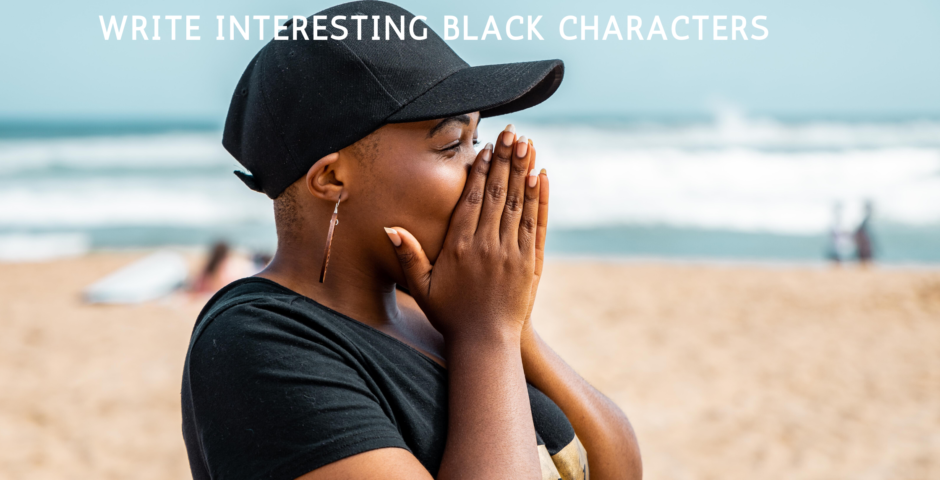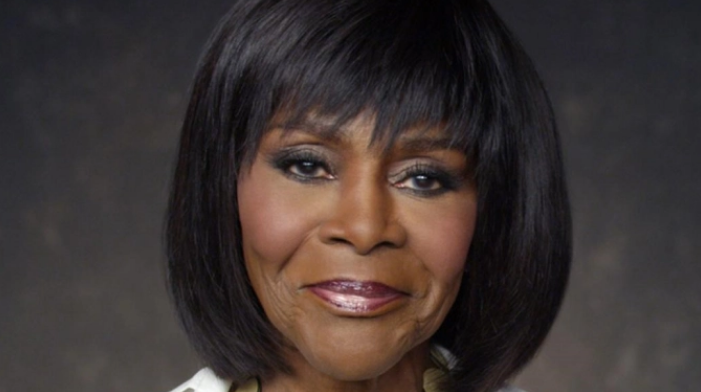
What Writing a Screenplay Has Taught Me About Portrayals of Black Women in Film
I’m writing a screenplay! This should come as little surprise to anyone. Last year I partnered with a Nigerian documentary maker and wrote my very first episodic script. That submission earned our team entry into IFP’s prestigious Episodic Lab in New York; one of ten out of 400 candidates. To say that the feat was a huge ego booster and a feather in my cap is an understatement. The screenplay I’m working on now is about a man who has spent 60 years curating his life and loses everything in a day – including his wife.
It’s a story I’ve wanted to tell for years, one that I had fully expected to produce in novel form. However ever since my BFFFL, Nana Darkoa, introduced and persuaded me of the benefits of blogging 11 years ago, I have been far more open to the idea of using varied mediums and formats to tell a story. I don’t know if this script will ever sell (and though I hope it will, it’s not the point), but I do know that it’s a burden I’ve carried around with me long enough.
I have no formal training in script writing. The primary resource I have relied on to guide this process has been Syd Field’s ‘Screenplay: The Foundations of Screenwriting’. It’s a great reference tool for anyone who does any type of writing, in my estimation. The tools Syd provides are practical and incredibly effective. One of the tools I’ve found most useful in the creation of character biographies, which provide the actor, filmmaker and co insight into the psychology of the character being portrayed on screen. When a screenwriter is stuck in the process, s/he can refer to the character biography to determine what the persona might say/do/react in a situation in order to convey dramatic action on screen. I often think back on Anne Hathaway’s portrayal of Lureen Twist in Brokeback Mountain. When her husband was outed, she responded to the news with a guttural “mm”. The sound, simple as it was, was laden with grief, surprise, confusion and resolve. Only a woman who knew Lureen – who had studied her – could evoke something powerful through such a casual gesture.
That brings me to the point: Hathaway’s impressive acting chops aside, her memorable portrayal can be attributed to many things, including the benefit of a detailed character study. Someone who knows white women, has invested the time to observe, interact with and understand them wrote that part. White women on screen (and by presumption, in real life) are multidimensional, multifaceted, interesting beings. They get to react to the world around them with quirkiness, solemnity and sagaciousness. Black women are rarely written with such range. The reason why, the answer, is very simple: the world is not curious about Black women. Not just people in writer’s rooms. I mean people in general.
Popular culture’s disinterest in Black women is something I have spent some time thinking about. While Black women have provided the blueprint for cultural influences in fashion, music, dance and language – which other cultures appropriate for commercial gain – there is very little curiosity about what foments the creative minds responsible for this innovation. What we are then subjected to is lazy imitations of our innovations spit back to us, the expectation being that it ought to be received with eager gratitude. This is true of the Kardashians; this is true of Mahalia Jackson wannabe Vicki Yohe and her one run; this is true of the film industry.
The world’s relationship with Black women is to observe us from a distance, never communing with us, rarely interrelating with us. The result is a mixed bag of judgments and proclamations about our character and motivations (never our desires) that leave us with shallow representations of us for global consumption and consideration. This is ‘knowing’ Black women.
I follow an account on Twitter called Feminist Witch. Earlier this week, she asked a pointed question. See if you can answer it:
Name 10 romantic movies where the successful, confident black woman falls for a single, successful black man who treats her right and has no crazy ex, no children and has no need to be built. Plus she isn't asked to settle. And she doesn't end up with a deadly disease or beaten.
— Fèminist Wítçh (@DonCorleAnn) June 30, 2020
How far did you get?
Though my screenplay is not a romance/rom-com, I considered Madame Witch’s question as I began developing Wanda, the wife of my main character. What makes her real? What makes her relatable? Who are some other Black women in film that I might draw inspiration from in order to build her personality…someone that a film executive would sign off on? I struggled to think of many…or any, to be honest. The most popular portrayals of Black women in film appear to be built on and revolve around a single impulse: to get/keep a man. Or to avert/delay some sort of suffering. (Thanks ever so much, Tyler Perry.)
What’s the answer? Is it to put more Black writers in the room? I don’t think so. As Tyler Perry and Kenya Barris have impressively demonstrated, one can be Black oneself and never know Black women at all. Black men are not exempted from the indisposition that makes the world at large disregard the Black female experience. One does not have to dive deep to discover it’s rooted in contempt.

And that’s the final conclusion I came to while writing my screenplay: a writer has to excise the contempt – the unspoken, unaddressed implicit bias s/he has for a group represented by a character in order to write them with any sort of range or interest. Think about it? How much thought has to go into developing the wisecracking sidekick? Not very much. I would like to see Black women written as more than audible accessories, and the only way to do that is for everyone in the entertainment ecosystem to see us as fully human.
Discuss? My DMs are open.




